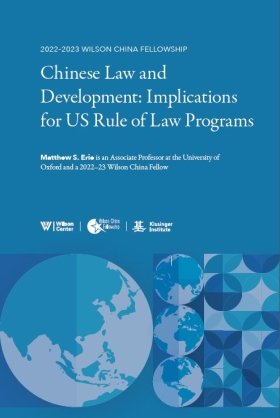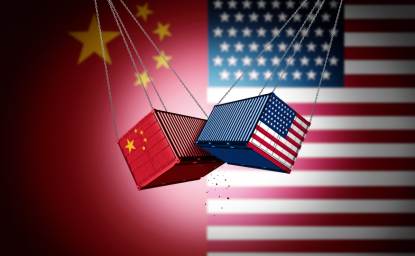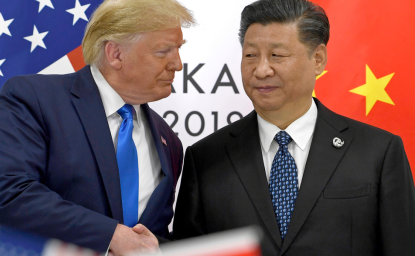Chinese Law and Development: Implications for US Rule of Law Programs



China is emerging as an alternative source for law and development for low-income and middle-income states. This is despite its conventional reluctance to engage in policy export abroad and, more immediately, its slowing economy, calcified rule, and a somewhat deprioritized foreign policy in the post-COVID era. A number of supply and demand factors account for the increasingly important role of law in its global development. On the supply side, against the backdrop of the decade-old “Belt and Road Initiative” and newer initiatives including the Global Development Initiative, Global Security Initiative, and Global Civilization Initiative, China is becoming increasingly assertive in offering “Chinese-style modernization” to host states in the Global South, part of which includes policy and law diffusion. Specifically, the Party-State has endorsed what is called “foreign-related ‘rule of law’” which is a bi-directional policy initiative that seeks to both integrate more foreign law into the Chinese legal system and also incorporate more Chinese law into foreign and international law. Beyond the political bluster and political signalling, there is evidence of such initiatives affecting legal practice and institutions. Legal organs are creating transnational networks with lawyers, judges, and businesspeople in host states to mitigate investment risk, share resources, and problem solve. Some of these networks have led to the establishment of legal institutions which, even if primarily symbolic, may gain traction over time. On the demand side, which is arguably more salient, host states value Chinese industrial policy, governance strategies, and digital ecosystem as facilitative of China’s economic growth model, of which law and regulation is part. Hence, host states borrow from Chinese law, policy, and standards. Even where China is not intentionally seeking to export its law, by the sheer size of its economic footprint in smaller states, the Chinese presence may have unintended effects on the domestic legal system. In the long run, these innovations may promote South-South solidarity but they may just as likely support the commercial and geo-strategic interests of Chinese enterprises which may have aggregate effects on access to justice, procedural transparency, and human rights in vulnerable states. How should US promoters of rule of law respond to Chinese law and development? While it is still early days for China’s legal development abroad, US policymakers should start thinking now about how to confront Chinese law and development, how to work with host states on building local knowledge about Chinese law, and where the US may even learn from China’s experimental efforts.


The Kissinger Institute works to ensure that China policy serves American long-term interests and is founded in understanding of historical and cultural factors in bilateral relations and in accurate assessment of the aspirations of China’s government and people. Read more



